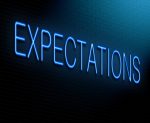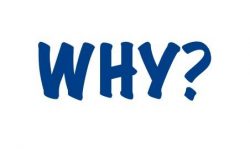Expectation Management
The Key to Making Your Business Work
Expectation Management is a very interesting theory that’s extremely useful when you’re trying to make your business work like a finely tuned Swiss watch. When I’m explaining the theory of Expectation Management to people for the first time I like to start with a question.
Is there a difference between customer service and customer satisfaction?
Sure there is – although when I ask the question in workshops typically over half the people say no at first. Customer service is what we do for them and customer satisfaction is how the customers feel about what we did or didn’t do for them.
Poor customer satisfaction = service didn’t meet expectations
Good customer satisfaction = service met expectations
Excellent customer satisfaction = service exceeded expectations
Business Creates Hubs of Expectations
The customers arrive with them, the employees arrive with them, the suppliers arrive with them, the surrounding community has expectations and of course, the company’s owners have expectations as well.
On top of that, each of the groups also has expectations of the others. For example, it’s reasonable and natural for employees to have expectations of the customers, the owners, and their co-workers.
Even small companies have complex hubs of expectations that spring up quickly. That’s one of the reasons for the often reported low survival rates of businesses. It’s difficult to make business work under these conditions. When your an owner sometimes it seems like everybody’s expectations come before yours.
The Key to Making Your Business Work Smoothly
Here’s another twist. Most expectations aren’t what you think they are and they have far more influence on our lives than most people realize. They make a business work in interesting ways.
Let me explain. In psychology circles, it’s common knowledge that we learn the most in the first two years of our lives. However; that’s when language skills are the lowest. How are we learning? How is this learning stored? The answer is Core Expectations: we learn what to expect from the world and what the world expects from us.
There is another well-known phenomenon called Childhood Amnesia. People can’t remember much, if anything at all, from the first few years of their lives. This is because we are trying to access Core Expectation based memories with language-based thinking. It doesn’t work. It’s like trying to access the internet with a CB Radio.
As children, when we learn a language and there are changes in the way we encode, store, and retrieve our memories. A new system enters the picture.
Our Primary Operating Process runs on Core Expectations and they’re stored using our original method. This doesn’t mean that our Core Expectations don’t continue to evolve, but they are fairly stable over our lifetimes.
Our Advanced Operating Processes (AOP) starts developing as we learn a language. The human experience can be characterized by the 20,00 word-a-day internal monologue (approx.) that rolls through our minds. This leads us to make the false assumption that the language-based Advanced Operating Process is the only one that affects our personal experiences.
Everyone’s Advanced Process operates in the realm of cognition. The definition of Cognition is: acquiring knowledge and understanding through thought. Psychologists agree; cognition is involved with the production of language, comprehension, attention, memory judgement, evaluation, and reasoning. It’s all about thinking with words.
By definition, a realm has a ruler and the Advanced Operating Process is ruled by cognition.
Alternatively, Core Expectations fuel our Primary Operating Process. (POP) It’s the primary process for two reasons. Because it’s the first one we developed in our lives and it’s also primary because it’s the fastest.
It actually goes unnoticed because it springs into action before the ruler of the cognitive realm can even begin to react. When it does arrive the cognitive ruler prefers to act like it’s the only one in charge.
This shows up in a phenomenon called implicit bias which unlike explicit bias – that reflects the attitudes or beliefs people endorse at a conscious level – implicit bias is the bias in thought and behaviour that results from subtle cognitive processes that operate at a level below conscious awareness and without intentional control.
Einstein seemed to understand this in 1946 when he wrote a paper about race relations in the United States, his adopted homeland.
“A large part of our attitude toward things is conditioned by opinions and emotions which we unconsciously absorb as children from our environment. In other words, it is tradition—besides inherited aptitudes and qualities—which makes us what we are. We but rarely reflect how relatively small as compared with the powerful influence of tradition is the influence of our conscious thought upon our conduct and convictions.”
We use different words to explain the same phenomenon. I paraphrase slightly here: he calls POP Core Expectations: unconsciously absorbed (as children) traditions that have a powerful influence.
Speed is the Key Factor
The POP also works faster than we can start thinking. This is because of where it’s processed in our brains. It’s in the Limbic System – on a shorter, faster circuit than cognition is.
It works at the speed of humour which is really just a specific flavour of Expectation Management when you stop to think about it. Good jokes have unexpected punchlines delivered in a particular style. You laugh first and then you think to yourself: “that was funny.” Humour is a good example of how our Primary Operating Processes responds first.
Conflict is another flavour of Expectation Management. All conflict is based on unmet expectations – with unmet Core Expectations producing the more ‘heated’ responses.
You might view a situation and think; why can’t they just work it out? The Israeli Palestine conflict for example. Reality is that it’s simply going to take more than words and language to sort it out.
The Core Expectation Pre-load
There’s another factor to consider: at first it’s at like trying to explain water to a fish – Core Expectations are omnipresent. We’ve been developing them our whole lives. They are present with us – all the time. They are always part of our experience of life.
We are pre-loaded with them. For example; if you are going out to a movie next Saturday you already have expectations of the person who will be sitting beside you.
If you go into a store next Tuesday and see the staff texting how will you feel? Next, they ignore you while you wait for service – will that meet your expectations? How will you react? What if they were working at YOUR business?
Wherever we go, whenever we get there, our Core Expectations arrive there before our cognitive mind gets there. That’s the nature of being human.
Emotions are Feedback
If you believe in evolution then you know everything evolves for a reason.
This leaves us with a question. Why do we have emotions?
Think of the very early days. Humans had to form tribes to survive. In this environment, there was little or no common language. In order to build functional groups, they had to learn what to expect from others and what they expected in return. Emotions were very valuable in that process. Being cast out of the tribe led to a shorter life.
Emotions are the wordless feedback we get from our Primary Operating Process. Today it’s primary goal seems to be trying to coordinate the Primary and Advanced operating processes.
.
Expectations >>> Events >>> Feedback (emotions)
THEN the Train of Thought Leaves the Station
We are all pre-loaded with Core Expectations that we’ve developed over our lifetimes. When events aren’t in sync with our expectations we get feedback in the form of emotions. It could be happy, neutral, sad, frustrated or any emotion. It works like customer satisfaction does.
It happens on single events and it is cumulative. When a person experiences a series of life events that don’t live up to their Core Expectations – for an extended period of time – it changes their baseline state of mind. More on this later.
Sometimes it doesn’t make sense in today’s world. Like when we get frustrated because the car in front of us seems to be driving slow AND we’re running late. We might hear ourselves saying, “come on, come on, let’s go” but, how is the driver of the car in front supposed to know we’re late? Also, why is it their problem?
In this case, our Core Expectation is that we should hustle, the event we are encountering is the slow car, the emotional feedback is frustration, and THEN the train of thought leaves the station and the Advanced Operating Process starts up and our cognitive thoughts start from there.
BUT, guess what – the thinking is getting pushed around by the emotional feedback. The train of thought has already been set in motion. We are having thoughts without a thinker – essentially. It becomes more difficult to pay attention to your surroundings, other than the slow car in front of you.
The garden hose is a good metaphor here. With little or no intensity – expectations met – the feedback is a wide soft spray, but as the intensity ramps up – when expectations are out of sync with events – it’s like twisting the nozzle until the water tightens into a narrow stream.
With the low intensity – wide spray – our AOS is able to entertain a wide spectrum of thoughts. With the high intensity – narrow stream – we’re not able to easily entertain a full range of thoughts. Our cognitive thoughts are being pushed by our POP. It works this way with both positive and negative emotional feedback.
This is basically how our Primary Operating Process works. It gets a lot more interesting as you notice it in action and become fluent with it. You’ll see that we have thoughts without a thinker, intuitions, and ‘gut feelings’ that move our cognitive attention around.
Without a doubt, the single most important expectation is respect. If a person’s experience of events is out of sync with their Core Expectation for respect and it’s undershot to a serious degree then the Primary Operating Process pops.
Did you notice the acronym that just popped up? It’s POP Core. Primary Operating Processes and Core Expectations. (popcorn)
Respect: The #1 Core Expectation
A company built on a foundation of genuine personal respect will find its Hub of Expectations much easier to manage. The work will flow better and the relationships with customers and prospects will be more productive.
Exposure & Experience = E²
Everyone’s Core Expectations for respect are developed through exposure and experience. Like all other Core Expectations, they can’t be learned through the cognitive process. It’s a lifetime of exposure to events combined with how a person experiences them.
Different people experience the same situation in different ways. That’s because everybody has their own personal history of exposure and experience that arrives before their cognitive minds can think.
Through this process, some people come to expect a lot of respect and others not as much. Working with this concept is more art than science. Showing too much respect to a person who doesn’t expect much will cause emotional feedback that makes them feel uncomfortable – even though they may not know why they feel that way. In business, it’s important to choose a minimum standard of respect to use and to know when to shift it up.
Using Expectation Management to make your business work more smoothly involves reading situations for predictable outcomes and taking actions that exceed expectations.
Once you become fluent you will see issues that can easily be resolved and many opportunities to improve. It leads to a more emotionally healthy Hub of Expectations.
The Train of Thought Left the Station
As I was writing this article I received this email from a client. I was written to his staff about the importance of returning phone calls. He had just overseen his company’s move to a new physical location.
“Throughout the organization of our relocation, I have had MANY experiences with our new property management company, the City, and my favourite unnamed insurance company where they don’t return my phone calls or respond to my emails until I raise it to a managers level. Because of this experience, if I had a choice, I would not deal with any of them again. I myself take it personally and really at the end of the day find it rude not to respond. Tell me your busy, tell me you will get back to me when you know what is going on or tell me to **** off! Just call me back or reply to the email.”
“I refuse to let our company get into the category I find these groups in. If anyone needs help to make phone calls, send emails, whatever, then ask for help from me, _______, _______, _______, or _______. We are all a team! We all look good together or we all look bad together!”
Clearly the events of non-returned phone calls and his experience of them caused some feedback.
Combined that with the second event of being informed that one of his company’s clients wasn’t getting their calls returned. Then the train of thought left the station and the email went out. (The version above was cleaned up a fair bit.) He took action to make his business work the way he wanted it to.
Two things collided here. The lack of respect he experienced and the personal attachment he had to his company. It’s predictable that this would draw a strong train of thought. In the garden hose nozzle analogy above this would have been a narrow stream instead of a wide spray.
I imagine that if someone had asked him if he had a minute the answer would have been: “sure, come back in 20 minutes.” Then what do you think the start of the conversation would have been about?
The point I’m trying to make here is that the Primary Operating Process does push the Advanced (thinking) Operating Process around and it apparently does it with great ease.
The Impact on Your Company
First and foremost a company built on a foundation of genuine personal respect will find their Hub of Expectations much easier to manage.
It’s possible to use Expectation Management to make the business work on a better emotional level. While you aren’t able to easily influence people’s Core Expectations you can work to ensure their events and experiences exceed their expectations when they engage with your company.
It’s a creative endeavour that starts with curiosity. Pay attention, observe, ask yourself questions, then take action. Keep making adjustments until the results are there.
Improving the Advanced Operating Process Impact
Building clarity around people’s Cognitive Expectations also avoids the emotional feedback that comes with conflict. Cognitive Expectations are the expectations that form in the AOP. They can and should be thought out.
It’s amazing how often misunderstandings exist in most companies. An example of this would be when somebody expects somebody else to take care of a task and the other person is unaware, has simply forgotten, or doesn’t believe it’s important. Can you imagine your company with a solid, workable, plan to address this issue?
At Rock Solid we use the Company Accountability Matrix (CAM) process that we’ve developed. It cognitively details the company – an analogy is the way your car gets detailed. Every piece gets attention. There are other benefits to it that are over and above the emotional health of the business: the CAM delivers a system for systemization, it also builds accountability & responsibility into organizations.
Everybody knows and everything flows is the objective. It makes business work the way you want it to. From startup to succession it’s a valuable tool.
The CAM is a straightforward plan for organizational improvement, it makes it easy to spot the missing pieces, it works great for effective delegation, and is very effective for succession planning.
It sounds like a remarkable business tool and it is. You can get a good understanding of it by reading this and two other posts here on the Rock Solid Blog: Can’t Manage Time and Accountability.
Business Feedback & Marketing
When we ask for feedback, particularly from customers it’s not always accurate. For example, people often buy based on emotions. Now that we understand the POP better we can see the feedback will be distorted because we ask for an AOP explanation of a POP decision. As my favourite author, Malcolm Gladwell has said.
“We have, as human beings, a storytelling problem. We’re a bit too quick to come up with explanations for things we don’t really have an explanation for.”
This is likely a significant part of the reason why business-people believe they need more training in marketing. It’s hard to get good feedback, It’s the nature of marketing. As with anything, it’s easier to develop your skills when there’s good feedback that can be relied on.
A few thoughts about moving forward. To get the attention your ads shouldn’t look like what customers have come to expect from your industry. E.g., an auto repair shop advertising oil changes.
Draw a circle and put expected in it. That’s where those ads go. They generally get lost in the huge volumes of ads we are exposed to every day. Some experts say it’s as high as 5,000 brand exposures per day. Our POP filters most of them out. We couldn’t function if we processed all of them.
Then draw a larger circle around it and that’s where the unexpected ads go. That might be a picture of a dented front end of a car on a rainy day with a caption of “Stop at our place for new tires – while you still can!” Good ads are unexpected enough to engage our POP and also create a train of thought that leads towards the potential for doing some business.
Beyond the second circle is where you go too far and the POP creates negative feedback. That might be a child’s toy being crushed or an injured person. You don’t want this feedback associated with your company or the following train of thought.
When you look at the paper now you will see the marketing donut. Good marketing is in the dough! You can use Expectations Management to make your marketing work better. Both by developing better strategies to get attention and creating marketing that gets the train rolling towards the proverbial cash register.
Integrity and Credibility
One of the things the POP excels at is noticing integrity. The word integrity has two meanings.
- adherence to moral and ethical principles; soundness of moral character; honesty.
- the state of being whole, entire, or undiminished, sound, unimpaired, or perfect condition
The Primary Operating Process excels at noticing when things don’t fit, are missing OR what should fit well. Then it tries to focus our attention on it using its language-less techniques. This is sometimes known as ‘gut feelings.’ The POP is more in tune with our bodies than our AOP thinking minds are.
Gravity is a good analogy. Our POP pushes and pulls when things seem to be out of place. It’s a constant force that’s always at work. Have you ever woken up with the answer to a problem that’s been bothering you?
The POP is always actively scanning and long-term issues can lead to elevated levels of stress and anxiety.
An interesting aspect is the moral and ethical principles the POP uses are learned through exposure and experience. They aren’t always the traditional principles that we would like to expect from others. They are the principles that a person develops in response to their exposure to events and their personal experience of them. Our POP doesn’t do value judgments the way our AOP does. Variety leads to a wide variety of personality traits.
Credibility has an interesting definition: the quality or power of inspiring belief. That sounds like leadership. At least the type of leadership most people want. There is another kind of leadership; leadership by position which is basically the people higher up the food chain must be obeyed. Leadership by credibility is a much better way to build a company.
Credibility is about both types of expectations: core and cognitive. This creates trust and positive expectations.
- Cognitive is about explaining a compelling WHY and a clear path forward.
- Core is about exposure to you and their experience of you being consistent with the WHY. This should matches your words.
People probably won’t work harder so you can get a faster boat and a bigger home. The best WHYs are about being in service to others. That seems to tap into the widest range of human experience.
Expectation Management and Problem Solving
Problems are a paradox. People think of problems as bad, but in reality, they are best thought of as puzzles to solve. We create companies to solve problems for personal reasons and for business reasons.
Personal reasons are things like: we want to earn more money, we want to call the shots for a change, we want to challenge our abilities, or maybe we just want more time to enjoy life and to spend less time earning a living.
Companies also earn revenues by solving problems for customers. Perhaps they don’t know how to fix their car, build a computer, sew their clothes, entertain their kids, catch a fish, build their house, replace their roof and so on. Our economy is so good a fixing problems that we often don’t recognize the true problems anymore. The fact that I don’t know how to grow my own food doesn’t even register with my cognitive brain until I write about problems. Not too long ago that problem would have been fatal.
As consumers, we’ve come to expect the economy will solve a wide variety problems for us.
So we have personal problems that we want solutions for and we choose to accomplish this by jumping into the economy and creating a company to solve problems for others.
That leaves us with another set of problems. Every business-person who chooses to build a company has to find solutions for the 5 Universal Problems. Also known as the 5UPs.
- What’s the purpose of your company? There’s 100 Million in the world, what will we pay yours for?
- How will you attract the right customers and do business with them?
- How will the business model be consistently profitable?
- How will you coordinate getting everything done and everything done well? – Hint CAM
- How will positive momentum be cultivated and maintained?
When you and the people in your company get good at solving those problems you will be successful. The key to understanding those problems is to know that they are never really solved for long. As the business grows and the competitive environment changes new and improved solutions are needed.
Remember they don’t include the problems your company solves for customers. That why every business-person needs to develop a good relationship with problems.
The challenge is this: the Primary Operating Process tries to steer people away from problems. It likes things it’s had exposure to and good experiences with. For most of us problems don’t fit that bill. As we learn new tasks we are likely to get emotional feedback that does make us comfortable. Our POP pushes the AOP into thinking that this might not be worth it or we’re good at it or we’ll never be able to learn it.
Our POP steers us away from areas where we might not be successful.
The net result is that we don’t see the overall challenge of building a great company for what it really is. Addressing the 5 UPs and customer problems better than the competition. At Rock Sold we excel at helping business-people achieve that result.
What we do is we show them the world-class process that we’ve developed and lead them through it. As we develop credibility we help them tackle the tougher challenges. It’s an interesting process.
The ongoing dynamic between the POP and the AOP – when dealing with problems – costs a lot of entrepreneurs a substantial amount of time and money. It’s often very cost-effective to bring in a professional who is familiar with finding solutions to business problems.
Developing Business Expertise
Business expertise develops just like expertise in other fields like music, chess, golf and figure skating. This has been proven beyond a shadow of a doubt.
The central concept is known as deliberate practice. This is exposure and experience again. Deliberate practice is a series of ‘events’ that each has a specific purpose. They build on each other incrementally. In some fields like Olympic athletics, it can take 10,000 hours of deliberate practice to develop world-class skills.
It helps to have a coach work out the deliberate practice plan and ensure that you successfully move through each step.
Fortunately, business isn’t as demanding as Olympic sports are. Rock Solid’s Company Strength Program leads business-people through the process with regular sessions spaced over six months on average. Participants need a working company as there are twenty projects that directly improve the company.
At the end of the deliberate practice plan, the participants will have improved business skills, plus the company will be stronger and performing significantly better.
Please make a comment below. This post contains the central material from my next book and I would like to get some feedback on how well the concepts are explained. The next book will also involve the cast of characters from ROCK SOLID – How to Strengthen Your Company and it will begin a year after ROCK SOLID left off.
Thanks for reading: Expectation Management Making Your Business Work.













Comments are closed